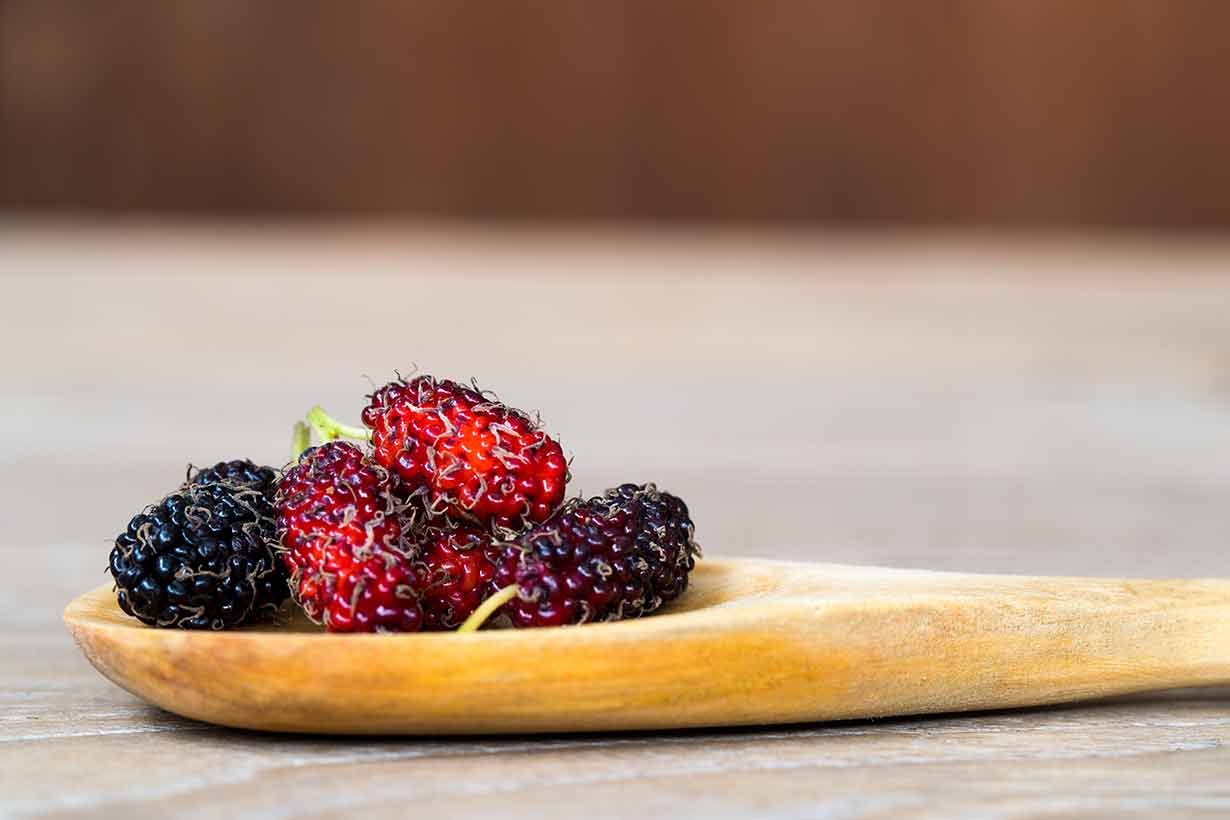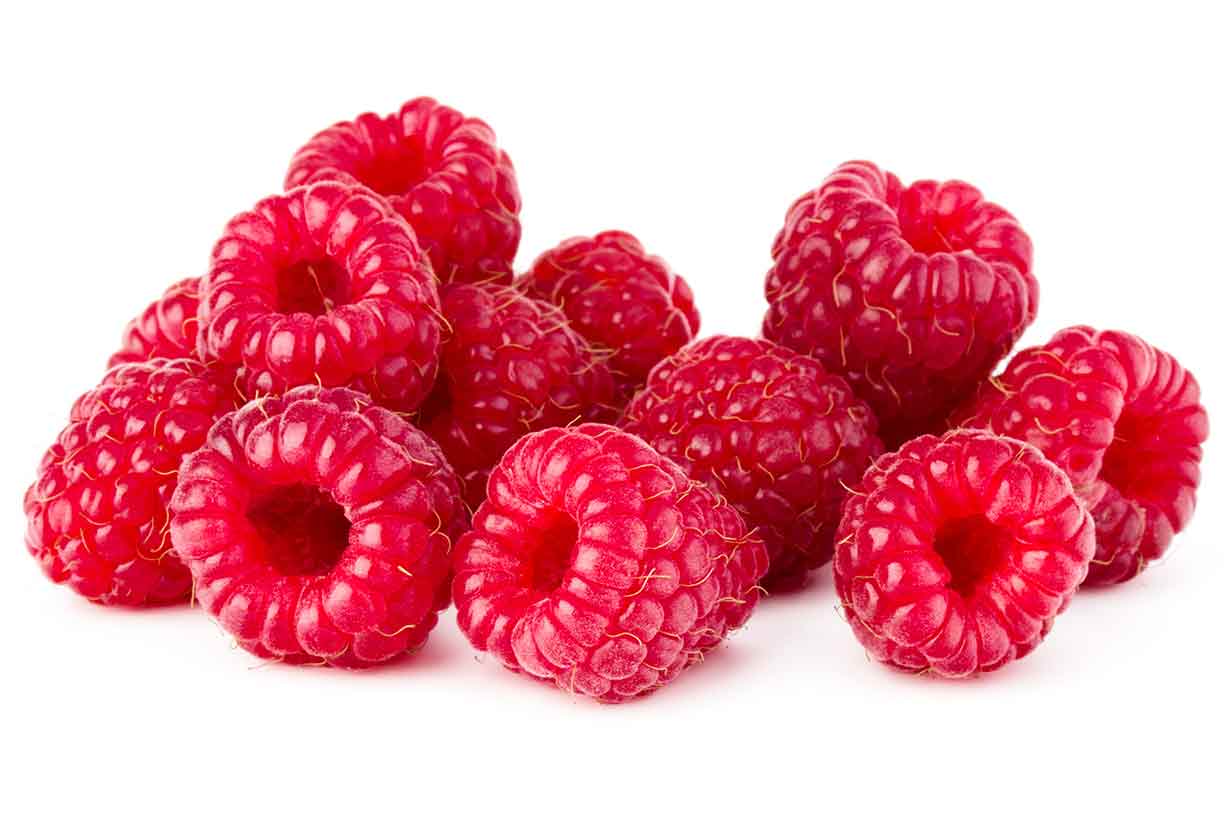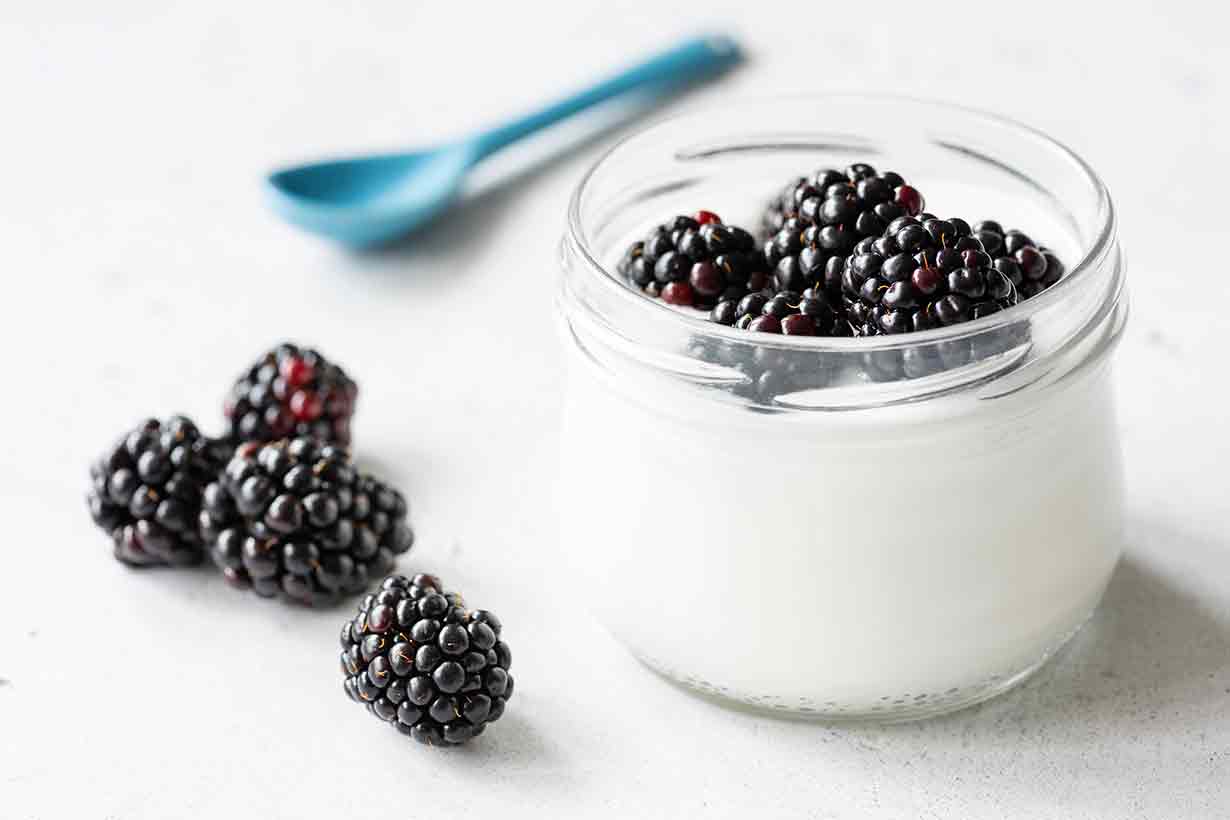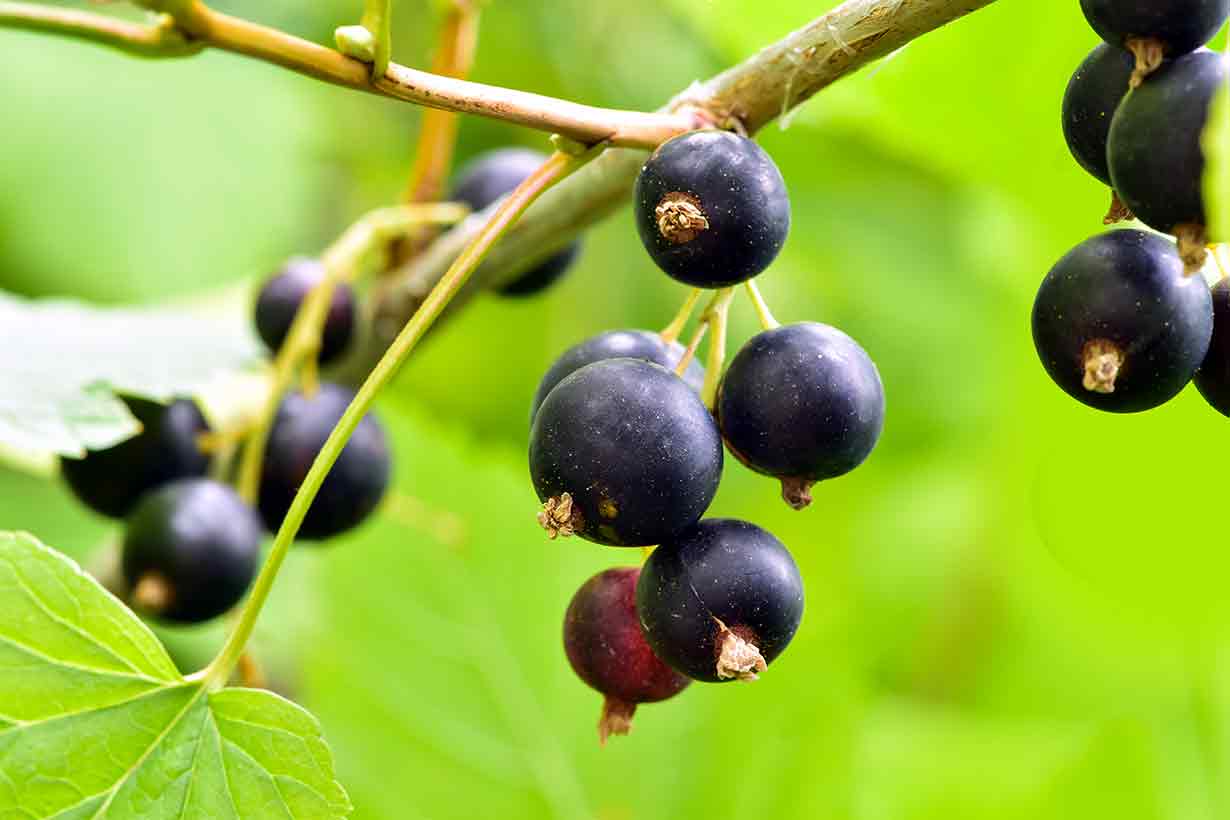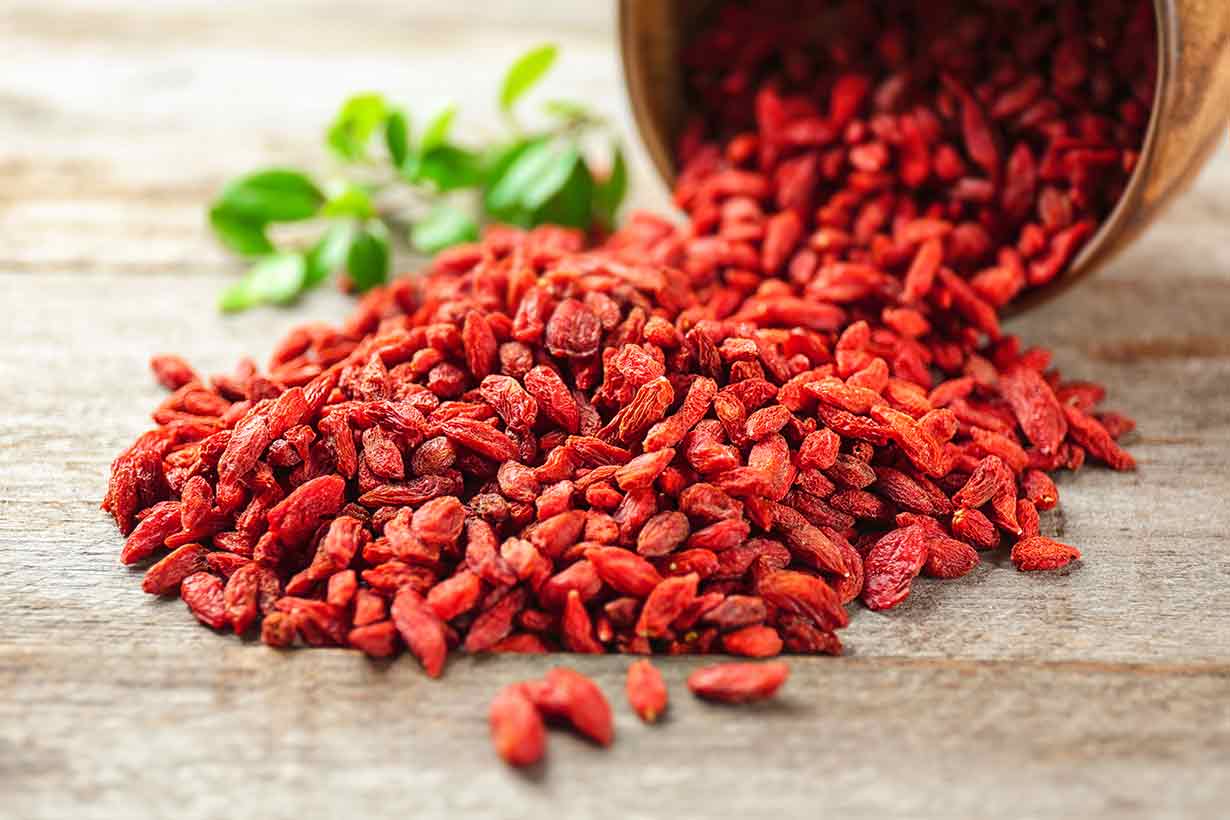Strawberries are among the most popular fruits, and they are very nutritious too.
In this article, we’ll explore their potential benefits, look at the latest scientific research on strawberries, and provide their full nutritional values.
Strawberries in a Nutshell
- High in vitamin C: Strawberries are an excellent source of vitamin C, also providing moderate to high amounts of copper, folate, and manganese.
- Full of polyphenols: Strawberries are an excellent source of polyphenols, specifically anthocyanins, flavonols, and flavanols.
- Health benefits: Recent systematic reviews and randomized controlled trials link strawberries to potential benefits for cardiovascular, cognitive, and gut health.
Important Note: The content in this article is for informational and educational purposes only. It should not replace medical advice from your healthcare provider.
Table of contents
What Are Strawberries?
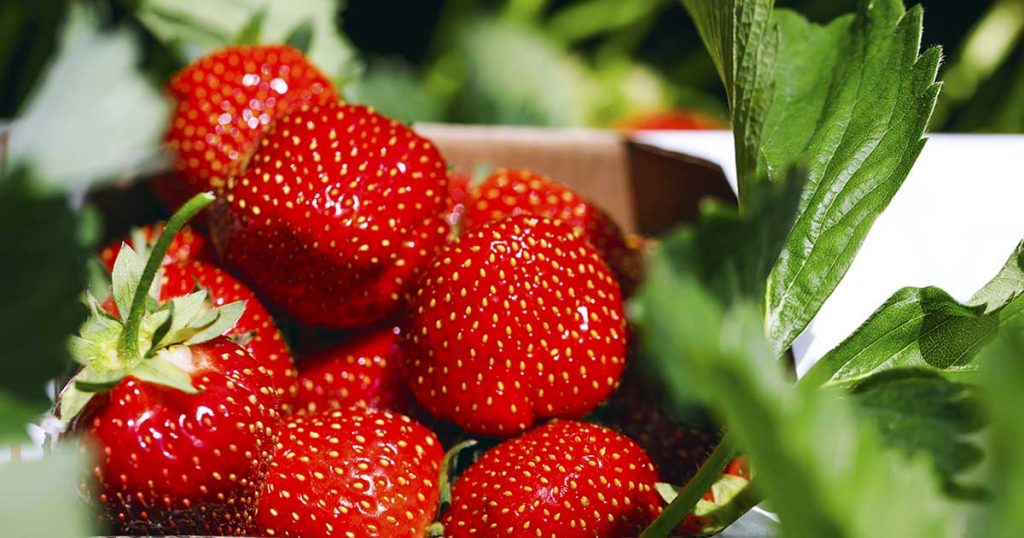
Before we review their nutritional properties, let’s first take a quick look at the history of strawberries.
They are thought to have originated in early 18th-century Europe (1). Botanically, they are not a true berry, and are known as a receptacle or ‘aggregate fruit’ (2).
That said, strawberries are treated as berries both culturally and in typical diets. These little fruits have a deep red color paired with a sweet and juicy taste, making them a popular choice globally.
There are dozens of different strawberry cultivars, including the unique pineberry, which is sometimes referred to as ‘white strawberry.’
Potential Benefits of Strawberries
In this section, we’ll explore known benefits of strawberries and some potential benefits supported by recent scientific research.
Strawberries Are High In Vitamin C and Folate
Strawberries provide a significant source of both vitamin C and folate, with a 144g cup of whole strawberries providing (3):
- 84.7 mg of vitamin C (94% of the daily value (% DV))
- 34.6 mcg of folate (9% DV)
Vitamin C is an essential vitamin known for its antioxidant properties and its ability to help keep the body’s cells healthy (4).
In contrast, folate is especially important for its role in minimizing the risk of pregnancy complications and birth defects. It also plays a key role in DNA production (5).
While we know that strawberries contain vitamin C and folate, research has also shown they increase blood levels of these nutrients. A 2023 randomized controlled trial fed 23 participants a strawberry puree beverage, which resulted in significant elevations of blood folate and vitamin C levels (6).
May Improve Heart Health
Strawberries contain several nutrients and compounds that are associated with better heart health, such as potassium and flavonoid polyphenols (3, 7, 8, 9).
Several studies involving human participants have also tested the potential benefits of strawberries for heart health:
- A 2025 randomized controlled trial found that strawberry intake at approximately 2.5 servings per day for 12 weeks significantly lowered total cholesterol and improved fasting blood glucose and insulin levels (10). The intervention also resulted in lower markers of inflammation and a decrease in body weight. All of these findings are associated with a lower cardiovascular risk profile.
- A 2021 randomized controlled trial demonstrated that consuming 32 grams of dried strawberry powder daily over four weeks led to a significant reduction in “bad” LDL-C (low-density lipoprotein cholesterol) particles (11). Interventions that lower LDL-C particle numbers are associated with a lower cardiovascular risk (12).
- Regarding cardiovascular risk factors, a 2020 meta-analysis of 11 randomized controlled trials found benefits from strawberry intake. The analysis noted that strawberry interventions significantly lowered markers of inflammation and appeared to lower total cholesterol and LDL-C in people with high baseline levels (13).
- A 2019 systematic review and meta-analysis of 14 clinical trials found that strawberry intake decreased oxidized LDL levels, markers of inflammation, total cholesterol, and diastolic blood pressure. However, there were also slight increases in fasting blood sugar (14). On balance, these changes would be expected to lower cardiovascular risk.
Based on their nutritional content and the existing research base, strawberries are likely a heart-healthy food to include in your diet.
Strawberries May Improve Gut Health
Studies have linked strawberries and the compounds they contain to improvements in gastrointestinal health:
- A 2025 randomized controlled trial found that, over a 10-week strawberry intervention, participants developed higher amounts of beneficial bacteria in their gut. Specifically, this included a greater abundance of Faecalibacterium and Prevotella. These bacteria are linked to lower levels of inflammation and improved lipids (15).
- Strawberries may have benefits for gut health through their polyphenol content. Supporting this, a 2020 systematic review on the prebiotic effects of polyphenols found that flavonoid polyphenols that are found in strawberries can support the increase of beneficial bacterial species in the gut (16).
- With 3 grams of fiber per 144g cup serving, strawberries are also a good source of fiber (3). Systematic reviews of randomized controlled trials have demonstrated that fiber consistently has a positive impact on gut health by increasing the amount of beneficial bacteria present (17, 18).
Related: The Top 25 Fruits High In Fiber
Potential Cognition Benefits
Strawberries have been investigated based on their potential to offer cognitive benefits.
Here are findings from recent studies in this area of research:
- A 2025 randomized controlled trial found that consuming 26 grams of freeze-dried strawberry powder daily over 8 weeks led to improvements in cognitive processing speed. This study involved 35 adults with a mean age of 72, and it also found that strawberry intake led to decreased systolic blood pressure and increased antioxidant capacity. The authors noted that 26 grams of freeze-dried strawberry powder is equivalent to 2 cups of fresh strawberries (19).
- An earlier 2021 randomized controlled trial involving 37 adults aged between 60 and 75 years also found some evidence of cognitive benefits. In this study, participants consuming 24 grams of freeze-dried strawberry powder daily over 90 days experienced learning and memory improvements. However, no improvements in gait or balance were observed (20).
Since these randomized controlled trials have relatively small sample sizes, further, well-controlled trials are necessary in this area.
However, these findings do support theories on strawberries having potential cognitive benefits based on their anthocyanin content, which is a type of polyphenol.
For example, a recent 2025 systematic review of 14 randomized controlled trials examined findings from anthocyanin interventions. The review found that anthocyanins had potential benefits for cognition, with improvements in short-term memory, learning, and working memory, among others, being observed (21).
While more research is necessary, strawberries may be a beneficial food for brain health.
Nutrition Facts
Let’s now examine precisely what nutrients a cup of strawberries provides.
The following tables show the nutritional profile for strawberries per 100g and per 144g cup, with nutritional data sourced from the USDA’s FoodData Central database (3).
Calories and Macronutrients
| Nutrient | Per 100g | Per 144g cup |
|---|---|---|
| Calories | 32 kcal | 46 kcal |
| Carbohydrates | 7.68g (3% DV) | 11.1g (4% DV) |
| Fiber | 2.0g (7% DV) | 2.88g (10% DV) |
| Sugars | 4.89g | 7.04g |
| Fat | 0.3g (<1% DV) | 0.43g (<1% DV) |
| Saturated fat | 0.02g (<1% DV) | 0.02g (<1% DV) |
| Monounsaturated fat | 0.04g | 0.06g |
| Polyunsaturated fat | 0.16g | 0.22g |
| Omega-3 | 0.07g | 0.09g |
| Omega-6 | 0.09g | 0.13g |
| Protein | 0.67g (1% DV) | 0.97g (2% DV) |
| Cholesterol | 0 mg (0% DV) | 0 mg (0% DV) |
Vitamins
| Vitamin | Per 100g | Per 144g cup |
|---|---|---|
| Vitamin A (RAE) | 1 mcg (<1% DV) | 1.44 mcg (<1% DV) |
| Vitamin C | 58.8 mg (65% DV) | 84.7 mg (94% DV) |
| Vitamin D | 0 mcg (0% DV) | 0 mcg (0% DV) |
| Vitamin E | 0.29 mg (2% DV) | 0.42 mg (3% DV) |
| Vitamin K | 2.2 mcg (2% DV) | 3.17 mcg (3% DV) |
| Thiamin (B1) | 0.02 mg (2% DV) | 0.04 mg (3% DV) |
| Riboflavin (B2) | 0.02 mg (2% DV) | 0.03 mg (2% DV) |
| Niacin (B3) | 0.39 mg (2% DV) | 0.56 mg (4% DV) |
| Pantothenic acid (B5) | 0.13 mg (3% DV) | 0.18 mg (4% DV) |
| Vitamin B6 | 0.05 mg (3% DV) | 0.07 mg (4% DV) |
| Folate (B9) | 24 mcg (6% DV) | 34.6 mcg (9% DV) |
| Vitamin B12 | 0 mcg (0% DV) | 0 mcg (0% DV) |
| Choline | 5.7 mg (1% DV) | 8.21 mg (1% DV) |
Strawberries provide a significant source of vitamin C and moderate amounts of folate.
Minerals
| Mineral | Per 100g | Per 144g cup |
|---|---|---|
| Calcium | 16 mg (1% DV) | 23 mg (2% DV) |
| Iron | 0.41 mg (2% DV) | 0.59 mg (3% DV) |
| Magnesium | 13 mg (3% DV) | 18.7 mg (4% DV) |
| Phosphorus | 24 mg (2% DV) | 34.6 mg (3% DV) |
| Potassium | 153 mg (3% DV) | 220 mg (5% DV) |
| Sodium | 1 mg (<1% DV) | 1.44 mg (<1% DV) |
| Zinc | 0.14 mg (1% DV) | 0.20 mg (2% DV) |
| Copper | 0.05 mg (6% DV) | 0.07 mg (8% DV) |
| Manganese | 0.39 mg (17% DV) | 0.56 mg (24% DV) |
| Selenium | 0.4 mcg (1% DV) | 0.58 mcg (1% DV) |
Strawberries offer a high level of manganese and a moderate amount of copper and potassium.
Bioactive Compounds in Strawberries
The main bioactive compounds found in strawberries are flavonoid polyphenols, including anthocyanins (like pelargonidin 3-glucoside), flavonols (including quercetin and kaempferol), and flavanols (such as catechin and epicatechin) (22).
Several randomized controlled trials have suggested that strawberry polyphenols may provide health benefits:
- A 2025 study in a mice model found that strawberry feeding directly led to polyphenol metabolites in the blood and lowered vascular inflammation. The strawberry supplementation also led to decreased levels of bacteria associated with vascular inflammation (23). While this was a mouse study, it provides a potential mechanism for the pathway by which strawberries may improve vascular health in humans, as seen in a 2021 randomized controlled trial (24).
- A 2018 randomized controlled trial found that daily intake of strawberries—equivalent to 3 cups of fresh strawberries—led to significant concentrations of polyphenol metabolites circulating in the blood (25).
- A 2017 randomized controlled trial found that a daily intake of 333 mg of polyphenols from strawberries and cranberries led to improved insulin sensitivity (26).
While research is ongoing and there is more to learn, the polyphenols in strawberries may play a key role in their potential health benefits.
Do Strawberries Have Any Drawbacks?
One downside of strawberries is that they can be quite expensive compared to staple fruits like apples, bananas, and oranges.
However, allergies are the primary potential health downside.
While strawberry allergy is quite rare, the fruit does contain allergens that may cause a reaction in susceptible individuals. According to New York Allergy & Sinus Centers, the primary allergen in strawberries is Fra a1 (27).
Research has indicated that strawberry allergy prevalence can be as high as 3–4% at the age of two, before falling to between 0.5–1% in later childhood (28).
As always, anyone who suspects they may have an allergy to strawberries should consult with their healthcare provider.
Summary
Strawberries are a pleasant-tasting fruit that offer high levels of vitamin C and polyphenols for relatively few calories.
Aside from their nutritional content, they may also have health benefits, with research showing potential benefits for cardiovascular, cognitive, and gut health.
That said, these trials were relatively small in size and further research is necessary.
Based on the existing research, strawberries are a tasty and beneficial addition to your diet.


